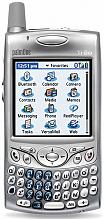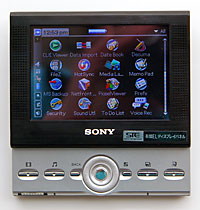Thu April 21 2005
 Word against Google's digitization of books Word against Google's digitization of books
|
|
05:37 AM by Colin Dunstan in E-Book General | News
"We are being given an opportunity to undermine our industry. It may not seem inherently scary at the moment. But my concern is what this will lead to in 10 years. We are opening a Pandora's Box, and we have no idea where it will lead. We just don't know, once they have this material, what they will do with it." It appears guys like Newton of the book publishing company want to repeat the same follies of their colleagues in the music and movie industry. Those who do not learn from history are doomed to repeat it. [via Teleread.org] |
|
[ 2 replies ] |
 Could pirates turn e-books into mainstream? Could pirates turn e-books into mainstream?
|
|
05:20 AM by Colin Dunstan in E-Book General | News
When e-books will truly be "in"... …when pirates catch up with proofs and "pre-release" original e-books the way they do movies. Related: Prison terms on tap for 'prerelease' pirates, on CNET. While I generally don't condone pirates and the illegal transfer of copyright protected material, there could be a grain of truth in the idea that pirates could be beneficial in accelerating general e-book awareness - at least in the short-run. This is a quick poll. Feel free to vote and state your opinion on this matter. |
|
[ 1 reply - poll! ] |
 Prepare for the Mobile OS war Prepare for the Mobile OS war
|
|
05:10 AM by Colin Dunstan in Miscellaneous | Lounge Tony from The Register has the scoop on two Gartner analysts, Nick Jones and John Girard, who predict big trouble for Symbian when the "Beast of Redmond" finally releases its Magneto release of Windows Mobile some time in Q3-Q4 2005. Jones believes that the lead Symbian currently enjoys as a smartphone OS will evaporate when Magneto finally appears. Magneto will effectively fix the bugs and fill the holes in the current version of Windows for Smartphones. That will mean the difference between the two offerings will be largely down to marketing - an area where the Beast of Redmond is acknowledged to enjoy a lead. The Beast will portray its offering as the obvious choice for corporate users. According to the Gartner team Research In Motion (RIM) doesn't have good cards either because of the latter's failed attempt to deliver adequate software tools for J2ME. And what about Palm OS? Cobalt? The future fusion of Palm OS with Linux? I was looking for a second page in this scoop, but there is none. Could it be perhaps that the two industry analysts have already given up the Palm platform? |
|
[ 0 replies ] |
 Windows Mobile is the most predictable development platform Windows Mobile is the most predictable development platform
|
|
04:41 AM by Colin Dunstan in Archive | Handhelds and Smartphones
Microsoft is emerging as one of the most predictable development platforms (determined by the difference between actual and planned development time). In addition, mobile applications developed on a Microsoft platform generally have a shorter development time than similar Linux, PalmOS or Symbian projects. VDC is expecting the global market for commercial mobile software (including OSes, application frameworks, java service and provisioning solutions) to reach $1.6b by 2008 (2004: $540m). Click here to find more information on this study. [Via Windows For Devices] |
|
[ 0 replies ] |
Wed April 20 2005
 Poll:Will PDAs be Relevant when Desktops Fit in Your Pocket? Poll:Will PDAs be Relevant when Desktops Fit in Your Pocket?
|
|
03:57 PM by Bob Russell in E-Book Readers | Alternative Devices
I don't think we'll see too much of a disruptive technology in this area for the next few years, though. It's not technology that's ready for prime time with the average consumer because of the high prices, feature compromises, battery life issues, limited disk space, bad PIM applications, long boot times, etc. And it's possible that tiny computing might not ever be as cheap and powerful as a desktop equivalent. But as we've heard from many visionaries, there's also the likelihood that all the storage and computing power won't have to reside at your computer anyway, whether it's a handheld or a desktop. Fast (I mean really fast, not just the cable internet speeds of today) wireless access to servers or desktop machines, or even computing farms may mean that you really only need to have a computer that can be an access point and and input/output device. You may do just about the same computing remotely from a PDA as a desktop, but with different I/O capabilities. Most people dismiss this because of the early days of thin client computing. We were promised that you could run apps on servers with minimal client maintenance, and minimal client specs. It was too good to be true. Bandwidth was the primary culprit, but also there were problems with the limited technologies available for web computing application interfaces. All that is going to change, and probably sooner not later. That means your PDA might look just as powerful as your desktop if they are both running applications hosted elsewhere. And it means that you don't even have to sync your data anymore... the data is accessible no matter what computer you use. Others would say that it's important to have local control of your data. They don't want it passing over the airwaves, or to servers that they don't own or control. They would much rather sync the data than remotely access it. As you can see, there's a lot of "what-ifs" that have yet to be worked out. And to our dismay, I propose that the way we compute in the future may have more to do with technology alliances and politics than technological progress. But that's a whole other topic. For now, vote in the poll, and let us know how you see the future for handheld computing. Or, more precisely, let us know how you want it to look! |
|
[ 8 replies - poll! ] |
 Palm completely irrelevant in the mobile market Palm completely irrelevant in the mobile market
|
|
12:55 PM by Colin Dunstan in Archive | Handhelds and Smartphones
You see, the Treo 600 was launched in September 2003, so it's taken them roughly 20 months to sell a million units, which works out to about 50,000 Treos sold a month. That's pretty pathetic. Keep in mind there were roughly 675 million mobile phones sold last year worldwide, including 14.38 million Symbian phones (and 6.67m in 2003). I think it is a bit unfair to compare the Treo to a whole industry segment (wouldn't it be better if he compared it to a specific competiting product?). Moreover, shouldn't we look at the Treo more as a PDA than as a mobile phone? |
|
[ 3 replies ] |
 Sony Clie VZ90 Palm OS reviewed Sony Clie VZ90 Palm OS reviewed
|
|
12:37 PM by Colin Dunstan in Archive | Handhelds and Smartphones
The device is fast, beautiful, has WiFi and is expandable. It makes a wonderful pocket multimedia player (just get a large CF card). Did I say the [OLED] screen is to die for? But two further drawbacks dampen the VZ90's attraction: the partial English translation and the fact this is an end of the road model in the departing Clie line. [Link provided by Sammy/PalmAddicts] |
|
[ 0 replies ] |
 Mvisto Pocket Media Player reviewed Mvisto Pocket Media Player reviewed
|
|
12:00 PM by Colin Dunstan in Archive | Portable Audio/Video
Click here to access the full review over at I4U. |
|
[ 1 reply ] |


 Nigel Newton, chief executive of major publisher Bloomsburry,
Nigel Newton, chief executive of major publisher Bloomsburry,  I've often wondered about what will happen to the PDA market when desktop functionality of today is able to fit in your pocket. It's not just a pie in the sky question anymore -- there are already pocket-sized Windows PCs like the OQO, and tiny laptops like the new Toshiba model just announced with a screen of about 7", and even a PDA that runs Linux.
I've often wondered about what will happen to the PDA market when desktop functionality of today is able to fit in your pocket. It's not just a pie in the sky question anymore -- there are already pocket-sized Windows PCs like the OQO, and tiny laptops like the new Toshiba model just announced with a screen of about 7", and even a PDA that runs Linux. Before you beat the living daylights out of me, please know that I didn't make this statement. The blame is all on Russ Beattie. In his latest blog entry
Before you beat the living daylights out of me, please know that I didn't make this statement. The blame is all on Russ Beattie. In his latest blog entry  The Sony Clie VZ90, most certainly the last of its kind (Sony made it quite clear even to non-believers that there won't be any Clie in the future), has been
The Sony Clie VZ90, most certainly the last of its kind (Sony made it quite clear even to non-believers that there won't be any Clie in the future), has been  The Mvisto Pocket DivX and ISO Player (
The Mvisto Pocket DivX and ISO Player ( Latest E-Books
Latest E-Books

